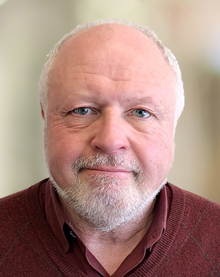Printed in the Winter 2024 issue of Quest magazine.
Citation: Greenfield, Ginger "Sri Lankan Embassy Commemorates Olcott" Quest 112:1, pg 8
 Napoleon Hill’s 1937 best seller Think and Grow Rich is one of the most influential works published in America in the twentieth century.
Napoleon Hill’s 1937 best seller Think and Grow Rich is one of the most influential works published in America in the twentieth century.
To me, the title evokes the image of a guy lounging in a hammock imagining his way to wealth, but this picture is rather misleading.
In fact, the title was an afterthought. By his own account, Hill struggled enormously to come up with one, even up to the printing date. Finally, his publisher called and said, “Tomorrow morning, I’ve got to have that title, and if you don’t have one, I have one that’s a humdinger.”
“What is it?” said Hill.
“We’re going to call it Use Your Noodle and Get the Boodle.”
Thus motivated, Hill came up with the final title after a night of sweating and laboring. He regarded it as a result of inspiration, but it’s nothing more than the publisher’s joke title recast in concise and serious form.
In any case, Think and Grow Rich is an intelligent and thorough guide to success. Many millionaires have credited their wealth to this book.
The most relevant part of the book here is its central point. To succeed, you must have what Hill calls a “Definite Chief Aim.” You must formulate it clearly and concisely and repeat it to yourself every day, if not every hour, but you are not to reveal it to anybody else except to your “Master Mind” group, which you have assembled to work toward this purpose. You then take intelligent and concrete steps to manifest it.
Most people who have worked with Hill’s method probably set their Definite Chief Aim as wealth. If your aim is to accumulate $1 million, you at least have a clear and quantifiable objective: it is clear whether you have reached it or not.
If you succeed, what then? Usually, push reset: now make your goal $10 million, and on and on. Since after a certain point wealth compounds unless it is actively mismanaged, you can accumulate a great deal very fast. When you have eaten up enough of the earth, you start thinking about philanthropy. (Whether such philanthropy does anyone any good is a question I will not broach.)
But to quote Mr. Bernstein, chairman of the board in Citizen Kane, “It’s no trick to make a lot of money—if all you want is to make a lot of money.” At some point, this Definite Chief Aim may start to seem irrelevant. Hence all of the disillusionments with wealth that we have heard about back to Ecclesiastes.
It would seem that a Definite Chief Aim, if it is to have any legitimacy, has to be more fundamental to an individual’s being and identity—the purpose for which, as the Kabbalists would put it, you were “called forth, created, formed, and made.”
As you may know, I am currently writing a course entitled “Exoteric and Esoteric Psychology” for the National Lodge. In the second lesson, I deal with the question of meaning and purpose. Without attempting to summarize the whole thing here, I might draw attention to a couple of key points.
Some thinkers, such as Viktor Frankl, author of Man’s Search for Meaning, assert that meaning and purpose are crucial to life—in extreme circumstances, even to survival—but he regards this purpose as a matter of free individual choice. Frankl’s thought comes very close to existentialism, even though he does not use that term in that book.
Another great psychologist from the middle of the last century, Ira Progoff, agrees about the centrality of meaning and purpose, but he regards them as much more organically rooted in the life process itself. In his book The Symbolic and the Real, he even observes that “the human being does not fulfill even its essential biological functions when it does not feel a framework of meaning.” Moreover, “in its essence, the psyche is the directive principle in the human being which guides its growth from the moment of conception forward.” Progoff also says, “The essence of the psyche is that it is the directive principle by means of which meaning unfolds in the individual’s existence.”
In short, the pursuit of meaning continues the process of organic growth from conception on. If this process is stymied, it results in neurosis.
I find myself more in accord with Progoff’s view. If it is to be authentic, a Definite Chief Aim runs much more deeply than a mere career choice, although it may well be—and no doubt usually is—closely connected with the work that one does in the world. It is less of a choice than a recognition.
The Bhagavad Gita appears to agree. The Sanskrit term for one’s organic purpose, which is also one’s duty, is dharma. The text says: “One’s own dharma, though imperfect, is better than the dharma of another well discharged. Better death in one’s dharma; the dharma of another is full of fear” (3:35).
In other words, it is better to do your own job badly than to do someone else’s well.
Richard Smoley

